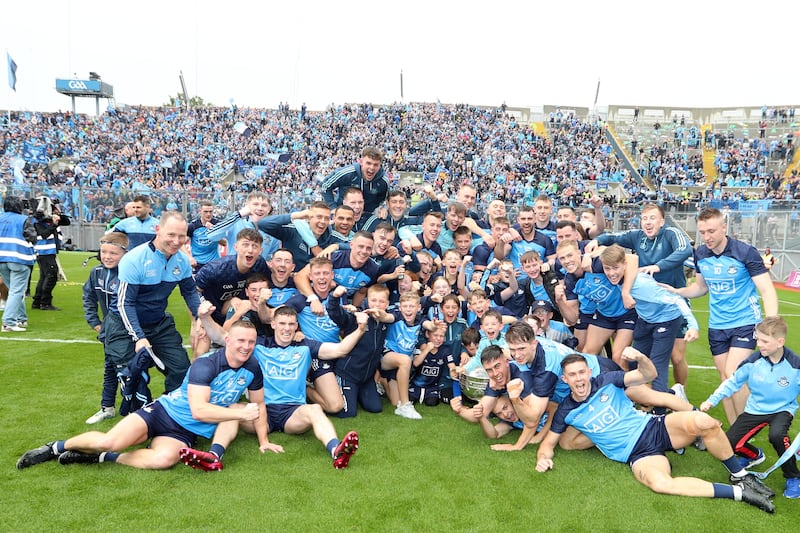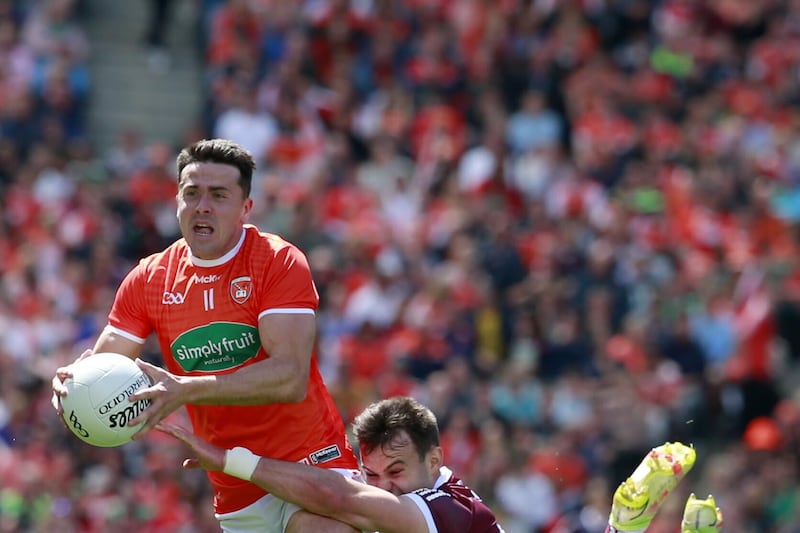THE Ulster final may give us a game to talk about.
So far though, none of the other provincial finals played in Munster and Connacht have left us feeling that the landscape might be changing.
The new structure of the championship this year may enthuse some teams and fans with home and away fixtures, but questions must be asked as to the merit of playing 24 games in total with only four teams being eliminated on the conclusion of the group stages of the Sam Maguire.
One can only assume this decision was a commercial one. More games, means more money for the GAA.
Sometimes you have to look past the spin and call it for what it looks like.
With preliminary quarter-finals, quarter-finals, semi-finals, and a final, Croke Park maximises its gate receipts.
Given the GAA are seeking to reduce the season into a narrow six-month window, it makes even less sense to seek preliminary quarter-finals as well as quarter-finals.
Alternatively, the top teams could have qualified from each group, leading into semi-finals, and a final.
Simple enough you would think.
At this stage, I am not sure if this split season format is working that well anyway.
Club football continues in earnest with only sporadic availability of inter-county footballers.
Some clubs are suffering as a consequence – dropping into relegation trouble with their 'star' player being unable to help the team.
A big part of the thinking around facilitating club football is that club leagues are considered as an irrelevance with priority given to club championships.
Meanwhile the county management are perhaps training them harder than any competitive game so the question of 'overloading' is at times misplaced in the direction of club managers as opposed to county managers.
The consequence of a split season has created a level of elitism with county players only available come club championship time, normally August or September.
Players want to play games.
The training to games ratio continues to be too stark.
Four to one ratio in training's favour, I suspect, remains a conservative estimate still.
The GAA need to scrap the McKenna Cup.
They also need to scrap the National League divisional finals.
Whoever finishes top on scoring difference or a head-to-head wins the division.
If the group stages of the championship structure find favour among the participants and fans, then it must move to a semi-final and final format for the best four teams.
One of the reasons why the inter-county championship was originally re-structured more than 20 years ago was an attempt (I suspect) to give many counties more games; there was an acknowledgement of the preparation and work that went in as being significant and it came down to one game or possibly two.
Due to my relative youth, I am unable to answer some of the questions of the time, for example, was improving the standards of the lower ranked teams a consideration for a 'back door' or qualifier structure?
Twenty years later – have the lower ranked teams then benefitted from any improvement in overall standards at county level?
I am sure someone with the ability to delve into key statistics could answer some of this.
I would hazard a guess and suggest that instead of narrowing the gap between the teams across Ireland this disparity in standards has continued to grow exponentially.
I would suggest that the levels of funding granted, in these last 20 years, from headquarters to county boards are a much bigger indicator and key driver when measuring the success of reducing the widening 'growth gap' prevalent with the GAA.
And this argument seems to have lost a fair bit of momentum in these last few years.
More games for any inter-county team is a great thing and it certainly helps to win the hearts and minds of our young people.
This is especially true when a 'carnival' type atmosphere arrives in town, with home venues now considered a part of 'group stage' football.
However, we need follow up coaching in order to help garner this interest and take it to fruition for our young people.
More coaches, means more funding to disadvantaged counties and areas currently underfunded.
This is a tough balancing act for the GAA.
Balance is something as important on the field as it is off it.

Derry look like the type of determined county team prepared to forego any of the distractions of the outside world and possible 'balance', instead focussing solely on capturing the Sam Maguire.
The Oak Leaf are genuine contenders.
Not in a long time have Dublin looked so weakened.
Kerry appear to be moving extremely fluidly, however they have played no one of note yet.
Galway appear to be the form team, however, again, they have found the provincial championship they compete in unfavourable when we talk about 'testing'.
Armagh come in as underdogs to a degree, with Derry having both momentum and self-confidence.
With the relegation and indifferent form of the league now behind them, Kieran McGeeney's charges have done what they needed to thus far.
Nothing more, nothing less, given the opposition.
Armagh probably do need this Ulster title more than Derry, considering that they have already captured this particular trophy last year with these same players.
But inter-county football is such a fickle place that they will want to be as successful as possible, for as long as possible.
Winning finals is a habit so I would expect Conor Glass, Shane McGuigan, and Chrissy McKaigue to drive a continuation of the standards this weekend and deliver more silverware.
If Armagh are to win, they need a better performance than the one produced against Down.
In truth, this was a game the Orchard men never looked like losing and their strength and size really shone through, particularly in the tackle.
Derry will play around this and are unlikely to take the ball into contact.
I don't think Armagh's route one approach will cause Derry as many problems as it did Down.
So McGeeney and his charges will need to be more pragmatic this time around.
Conor Turbitt, Rian O'Neill, Rory Grugan, and Andy Murnin are all players capable of beating any team single-handedly on their day.
As too is 'Soupy' Campbell when 'on it'.
They will all need to play well to beat Derry.
One or two players performing to the standards required will not be enough against an 'entire system' finely tuned over these last few seasons.
The question is - have Armagh improved from last season?
Not sure!
Have Derry?
In my opinion, yes.
Too simple a summation perhaps for a final – but my rationale nonetheless for a Derry win.








